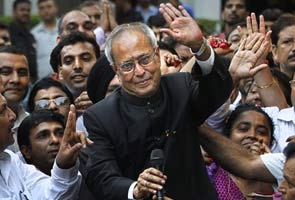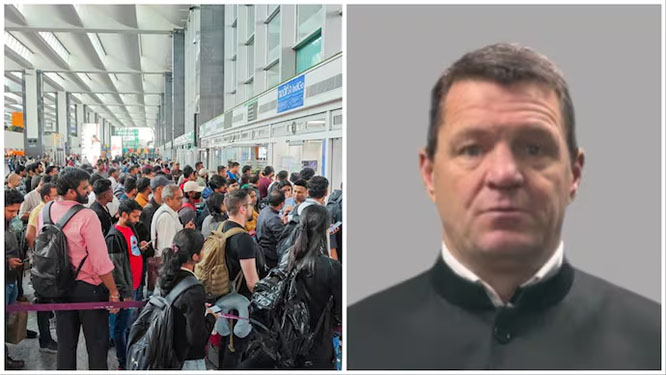
In the end, the suspense on Sunday was only over what the margin of Mr Mukherjee's victory would be. He got 69.31 per cent votes, very close to the 70 per cent that his poll managers had promised he would. In absolute numbers that meant 713,937 votes of the total 10,29,924 valid votes polled. This included a windfall from cross-voting by MLAs in BJP-ruled Karnataka.
The BJP's man, Purno Sangma, got the other 30.69 per cent and is still crying foul.
None of the North East states voted for Mr Sangma, who, while conceding defeat and wishing Mr Mukherjee success last evening, also alleged that threats, gifts and coercion by the central government had helped Mr Mukherjee's cause. He also said he might rake up the office of profit issue again to challenge Mr Mukherjee's election in court.
There are other detractors. Team Anna has said it will begin a fast on Wednesday, the day Mr Mukherjee takes over, with what activist Arvind Kejriwal called a revelation of corruption charges against the President-elect, who was the country's Finance Minister before he resigned last month.
Mr Mukherjee has other things on his mind. Like meeting the hundreds of visitors now making a beeline for his residence. He said on Sunday evening as news of his victory came in, "I have received much more from the people, parties, Parliament than I have given them. I will try to justify."
Chief Minister of West Bengal Mamata Banerjee reportedly called Mr Mukherjee to congratulate him last evening and confirmed that she would attend the swearing-in ceremony. Ms Banerjee had said last week that she would vote for Mr Mukherjee, but very reluctantly.
Among the many important visitors that he received last evening were Congress President Sonia Gandhi and Rahul Gandhi, Lok Sabha Speaker Meira Kumar and Prime Minister Manmohan Singh and his wife. Today, the list of high-profile visitors included Nationalist Congress Party (NCP) leaders Sharad Pawar, Praful Patel, Tariq Anwar and DP Tripathi.
BSP chief Mayawati visited and said, "I have come to congratulate him and I had said this earlier that for the President's post, he is capable and well-accomplished. I am confident that he will fulfill his responsibility with dignity, honesty and abide by the constitution."
NCP chief Sharad Pawar, in Delhi today to decide on whether his party will continue to participate in the UPA government, is expected to also visit Mr Mukherjee this morning. The NCP duly waited till the Presidential elections were over before it went public with its sulk.
The returning officer for the presidential election and Rajya Sabha Secretary General V K Agnihotri will send a copy of the result and the victory certificate to the Law Ministry to enable the government initiate the process of installing the new President. A similar copy will be sent to the Election Commission.
On Wednesday morning, Mr Mukherjee will be escorted by the President's Military Secretary to Rashtrapati Bhavan. From there President Pratibha Patil and Mr Mukherjee will leave in a ceremonial cavalcade for the swearing-in ceremony. The short route will be lined with soldiers. He will take oath in the Central Hall of Parliament. The Chief Justice of India will administer the oath of office.
Soon after the swearing-in ceremony, Mr Mukherjee will go to Rashtrapati Bhavan where he will be received at the forecourts by outgoing President. Mr Mukherjee will then escort Ms Patil to her temporary accommodation in Tughlak Lane where she will stay till her post-retirement home in Pune is ready.
Up ahead lie tough tasks for Mr Mukherjee. There are more than 10 petitions sent by prisoners on death row to the President's office, asking for clemency. Among them, that of Afzal Guru, convicted for a terror attack on Parliament in 2001, a brazen assault in which 12 people were killed when Parliament was in session. The new President will have to decide what becomes of these mercy petitions, some of which have major political ramifications. For example, Balwant Singh Rajoana, who is in jail in Punjab for the assassination of former chief minister Beant Singh, is treated as a martyr and paid lavish tribute by the Sikh clergy.
The President is also likely to have a huge imprint on the political future of the country in 2014, when the general elections are expected to yield a hung Parliament. The President could then have a casting vote to decide who should come to power. He also has the right to dissolve a deeply-fractured Parliament, if that's what the results deliver.







Comments
Add new comment